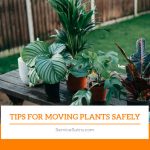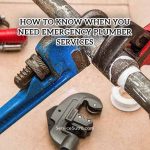Protecting your home is a top priority for many homeowners. It’s essential to take proactive measures to keep your property and loved ones safe from harm. There are several ways to protect your home, and it’s important to consider all of them to ensure that your home is as secure as possible.
One of the most effective ways to protect your home is to install a security system. A security system can deter burglars and alert you and the authorities in case of an intrusion. There are various types of security systems available, from basic alarms to sophisticated systems that include cameras and motion sensors. It’s important to research different options and choose a system that suits your needs and budget.
Here’s what we are discussing today in this post.
- Physical Security Measures
- Alarm Systems
- Surveillance Equipment
- Community Safety Programs
- Personal Safety Practices
- Insurance and Legal Protection
Physical Security Measures
When it comes to protecting your home, physical security measures are a crucial consideration. These measures are designed to deter intruders and prevent them from gaining access to your property. Here are a few physical security measures to consider:
1. Install High-Quality Locks
The first line of defense for any home is its locks. Make sure that all exterior doors have high-quality deadbolts installed. Consider upgrading to smart locks that allow you to monitor and control access to your home remotely.
2. Reinforce Doors and Windows
Doors and windows are common entry points for intruders. Consider reinforcing them with security film, metal bars, or impact-resistant glass.
3. Use Motion-Activated Lighting
Motion-activated lighting is an effective way to deter intruders. Install lights around the perimeter of your home that turn on when motion is detected.
4. Install a Security System
A security system can provide an additional layer of protection for your home. Look for systems that include cameras, motion detectors, and alarms.
5. Keep Your Property Well-Maintained
A well-maintained property can deter intruders by giving the impression that someone is always home. Keep your lawn trimmed, install fences, and remove any potential hiding spots.
By implementing these physical security measures, you can significantly reduce the risk of a break-in at your home.
Alarm Systems
Alarm systems are an essential part of home security. They can alert homeowners and authorities of potential break-ins, fires, and other emergencies. There are several types of alarm systems available, including wired and wireless systems.
Wired alarm systems are hardwired into the home’s electrical system and typically require professional installation. They are reliable and have a long lifespan, but can be more expensive than wireless systems.
Wireless alarm systems use sensors that communicate with a control panel via radio frequency signals. They are easy to install and can be less expensive than wired systems. However, they may be more susceptible to interference and have a shorter lifespan.
When choosing an alarm system, it is important to consider the features that are most important to you. Some systems offer 24/7 monitoring, while others require homeowners to monitor their own systems. Some systems can be integrated with home automation, allowing homeowners to control their alarms remotely.
Regardless of the type of system chosen, it is important to ensure that the system is installed correctly and that all sensors are tested regularly. Homeowners should also consider adding additional layers of security, such as security cameras and motion-activated lights, to further protect their homes.
Surveillance Equipment
Surveillance equipment is an effective way to protect your home from intruders. There are various types of surveillance equipment available in the market, ranging from basic cameras to advanced systems that integrate with your home security system. Here are some things to consider when choosing surveillance equipment for your home:
- Installation Cost: The cost of installation varies depending on the type of surveillance equipment you choose. Basic cameras can be installed by the homeowner, while advanced systems require professional installation.
- Indoor vs. Outdoor Cameras: Outdoor cameras are designed to withstand harsh weather conditions and are ideal for monitoring the exterior of your home. Indoor cameras, on the other hand, are perfect for keeping an eye on the interior of your home.
- Wireless vs. Wired Cameras: Wireless cameras are easy to install and can be accessed remotely, while wired cameras require professional installation and are harder to access remotely.
- Motion Detection: Cameras with motion detection are a great way to save storage space and only record when motion is detected.
- Night Vision: Cameras with night vision are essential for monitoring your home during the night.
- Storage: Surveillance equipment records footage, and it is essential to have enough storage to store the footage. Consider purchasing a system with cloud storage or a hard drive with enough storage capacity.
Overall, surveillance equipment is an effective way to protect your home from intruders. It is essential to choose the right equipment for your needs and budget.
Community Safety Programs
One effective way to protect your home is to participate in community safety programs. These programs are designed to help neighborhoods work together to prevent crime and keep their community safe. Here are some examples of community safety programs you may want to consider:
- Neighborhood Watch: This program involves residents working together to watch for suspicious activity and report it to the police. Neighborhood Watch groups often hold regular meetings and provide training on crime prevention techniques.
- Citizen Patrol: Similar to Neighborhood Watch, Citizen Patrol involves residents patrolling their neighborhood to deter crime and report any suspicious activity to the police.
- Community Policing: This program involves police officers working closely with residents to identify and address community issues, including crime prevention.
- Crime Stoppers: This program allows residents to anonymously report crimes or provide tips to help solve crimes. Information provided through Crime Stoppers can lead to the arrest and conviction of criminals.
By participating in community safety programs, you can help keep your neighborhood safe and protect your home from crime.
Personal Safety Practices
When it comes to protecting your home, personal safety practices are just as important as physical security measures. Here are a few practices to consider:
- Locking Doors and Windows: This may seem obvious, but it’s important to make sure all doors and windows are locked when leaving the house or going to bed. This includes second-story windows, as burglars can easily climb up to gain access.
- Installing a Peephole: A peephole allows you to see who is at your door before opening it. This is especially important for those who live alone or in areas with high crime rates.
- Creating a Neighborhood Watch: Getting to know your neighbors and working together to keep an eye out for suspicious activity can greatly increase the safety of your community.
- Being Aware of Surroundings: When coming and going from your home, be aware of your surroundings. Look for anything out of the ordinary and avoid walking alone at night.
By implementing these personal safety practices, you can greatly reduce the risk of a break-in or other security threat.
Insurance and Legal Protection
Protecting your home with insurance and legal protection is a crucial step in securing your property. By having adequate insurance coverage, you can ensure that you are financially protected in case of damage or loss to your home. Similarly, legal protection can help you deal with any legal issues that may arise from owning a property.
Here are some ways to ensure that you have the right insurance and legal protection for your home:
- Homeowner’s Insurance: Homeowner’s insurance is a type of property insurance that covers damage or loss to your home and personal belongings. It also provides liability coverage in case someone is injured on your property. Make sure to review your insurance policy regularly to ensure that you have adequate coverage for your home and personal belongings.
- Flood Insurance: If you live in an area prone to flooding, it is essential to have flood insurance. Standard homeowner’s insurance policies typically do not cover flood damage, so it is important to purchase a separate policy.
- Title Insurance: Title insurance protects you from any legal issues that may arise from owning a property. It ensures that you have a clear title to the property and that there are no liens or other legal issues that could affect your ownership.
- Liability Insurance: Liability insurance provides coverage in case someone is injured on your property and sues you for damages. It can help cover legal fees and any damages awarded to the injured party.
By having the right insurance and legal protection, you can have peace of mind knowing that your home and personal belongings are protected. Make sure to review your policies regularly and update them as needed to ensure that you have adequate coverage.






